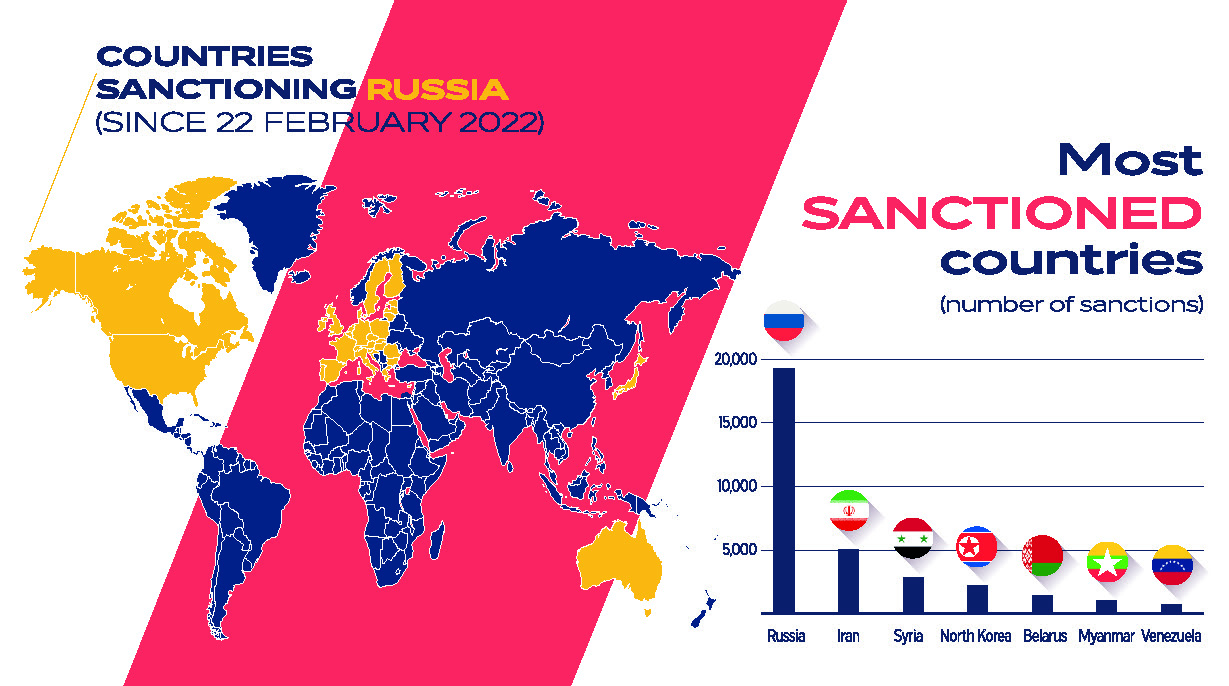
Sanctions are not a historically proven method of resolving political conflicts of interest. North Korea, Iran, Cuba, Syria or even Myanmar have been subject to a plethora of sanctions for decades, but this has at most affected the living standards of ordinary citizens, but less the political ambitions and stability of the regimes in those countries.
This is even more the case for Russia, which, although it has been subject to sanctions for a decade and has been the record holder for more than two years with 16,000 punitive measures imposed over the past two years, is increasingly outperforming Ukraine, which is supported by the entire West. Not only has the supply of the military and the stability of the political system remained unbroken despite the sanctions, but there has been no drastic change in the standard of living of Russian citizens, to the extent that they have largely unproblematic access to popular products from Western brands that were supposed to have been withdrawn, sometimes under new brand names.
Of course, we cannot say that sanctions have had no effect: the continuing, albeit diminishing, supremacy of the dollar means that sanctions are taken seriously, especially in the international financial sector, which sometimes causes headaches for the Russians, but Russia's weight in the world economy has proved so great that the parties concerned generally find ways to avoid sanctions.

In fact, the Western countries are unable to detach themselves from the Russian economy: it is an open secret that a significant part of Russian oil shipped to India ends up in the countries that impose sanctions, but it is not so easy to get rid of Russian gas or nuclear fuel if European leaders do not want to bring their economies to the brink of collapse. But it is also indicative that, while direct Western-Russian trade relations have declined significantly, the last two years have seen a dramatic increase in trade relations between the West and Central Asia, and obviously not by chance.
Thus, Western countries are forced to turn a blind eye to the fact that economic links between them and Russia continue to exist through intermediaries. If only because the sanctioning of intermediaries could set off a chain reaction in which those imposing sanctions would end up isolating themselves. Indeed, the states that are sanctioned or wish to be isolated tend to seek each other's company, following a simple rule: the effectiveness of isolation attempts is inversely proportional to the number of countries to be isolated and the number of sanctions imposed on them. Thus, the more countries are sanctioned and the more countries they try to 'isolate', the easier it is for them to fend off these attempts without taking risks, with the help of each other.
In this light, we can imagine what would happen if the Western countries, in a Cold War hysteria, were to take similar measures against China as they have against Russia. Trying to 'isolate' China, which is a major trading partner of many countries and regions of the world, including the European Union, would not only be a hopeless but a disastrous undertaking.